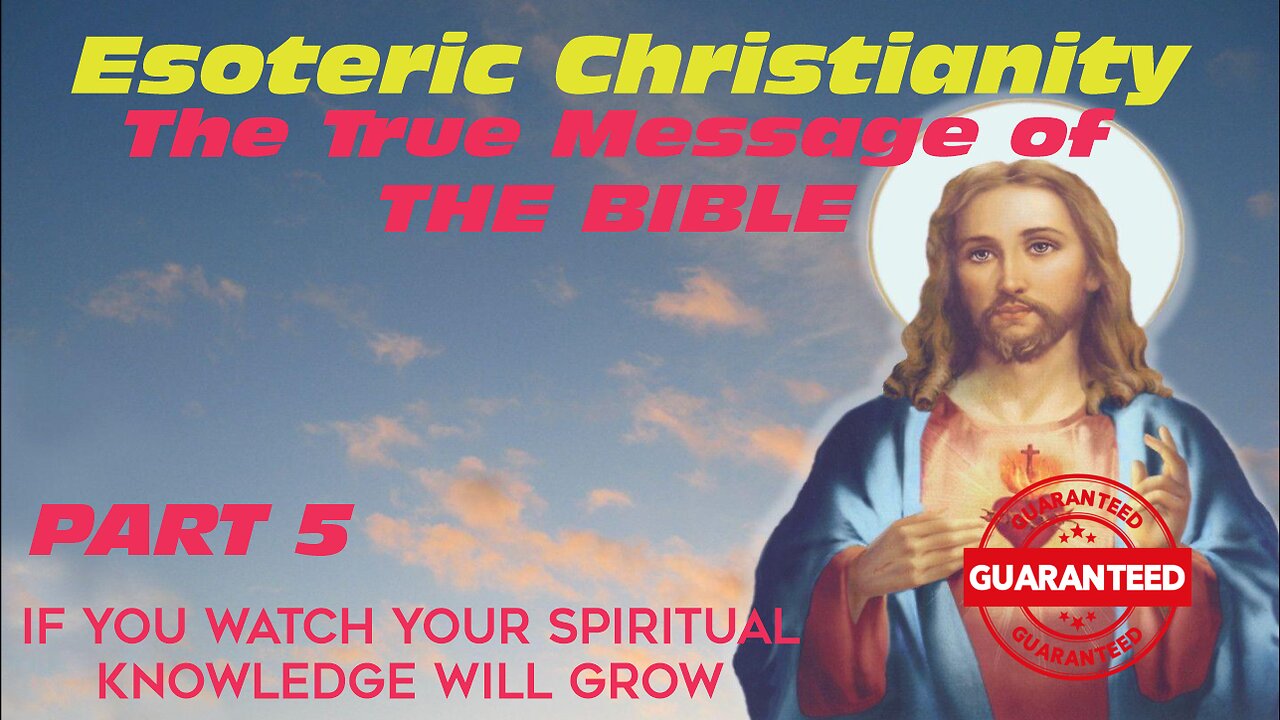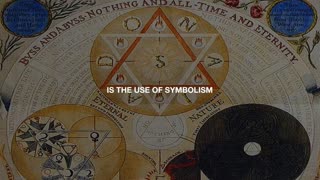Premium Only Content

Esoteric Christianity Part: 5 The Psychological Aspect
Many people write or speak about esoteric Christianity. They often mention the psychological aspect that we are going to begin to talk about today. But they miss the beginning of miracles, which is working with the creative energies, that base energy of the water, the fertile or creative energy that we have. The esoteric tradition understands that within those waters is the power of the Lord, the creative possibilities. And from those waters comes forth the wine of Christ. This is an element that not only provides great happiness, great joy, and love, but which also radically transforms us and gives us that power to transform, to overcome, and to do the work.
The second aspect, which goes in hand in hand with transmutation, is the psychological work. But without this first aspect of transforming our energies, as we clearly discussed in our prior lecture, the psychological work is not possible. Therefore, the beginning of miracles is related to the mystery between man and wife. And whether you are single or married, you can still transform or transmute that creative energy.
The main point here is that if we waste our energies, if we always eject the creative energies from our body, then we are left with no power, no energy to do the psychological work.
The very next verse of the same chapter of the Book of John, after the wedding at Cana of Galilee, continues to our main topic, the cleansing of the temple.
Let us read John 2:12:
12 After this He went down to Capernaum [Καφαρναοὺμ, כפר נחום, City of Consolation], He, His mother, His brothers, and His disciples; and they did not stay there many days.
13 Now the Passover of the Jews was at hand, and Jesus went up to Jerusalem [ירושלים Yerushalayim, “foundation of peace”]. 14 And He found in the temple those who sold oxen [βοῦς bous, פּרה parah, cow] and sheep [πρόβατα probata, כבש kebes] and doves [περιστερὰς peristeras, יונה jonah], and the money changers doing business. 15 When He had made a whip of cords, He drove them all out of the temple, with the sheep and the oxen, and poured out the changers’ money and overturned the tables.
16 And He said to those who sold doves [יונה jonah], “Take these things away! Do not make My Father’s house a house of merchandise!” 17 Then His disciples remembered that it was written, “Zeal for Your house has eaten Me up.” (Psalm 69:9).
18 So the Jews answered and said to Him, “What sign do You show to us, since You do these things?”
19 Jesus answered and said to them, “Destroy this temple, and in three days I will raise it up.”
20 Then the Jews said, “It has taken forty-six years to build this temple, and will You raise it up in three days?”
21 But He was speaking of the temple of His body. 22 Therefore, when He had risen from the dead, His disciples remembered that He had said this to them; and they believed the Scripture and the word which Jesus had said.
If we read carefully, we can see that Jesus went down to Capernaum. It was the time of the Passover. And then Jesus went up to Jerusalem. In Jerusalem, he found a temple, where there were people making commerce – selling oxen, sheep, and doves, and money changers. And he got a whip. With that whip, he drove out all of the negative activities of the temple.
You can see many depictions of Jesus whipping or acting very strongly against these people in the temple. This is a story that we need to realize shows the aspect of Christianity that is very fierce and strong. But this strength, this type of activity or war, is never against people outside of us who we dislike or hate. This, of course, is happening within ourselves. We need to clean our interior temple because within ourselves are many negative elements.
Our inner temple is our soul. And what do we find within our soul? In other words, what do we find within our minds, our psyches, and our hearts? We find a lot of elements that have no concern for the Lord, that take this temple and make it something just for exchanging goods, making money, and having no concern for the real purpose of the temple.
-
 10:00
10:00
Awaken Your Inner Light
1 year agoThree Books of Occult Philosophy by Cornelius Agrippa
181 -
 45:22
45:22
Kyle Rittenhouse Presents: Tactically Inappropriate
3 hours ago $0.86 earnedKyle Rittenhouse Presents: Tactically Inappropriate
10.3K10 -
 1:13:16
1:13:16
Patriots With Grit
2 hours agoThe Comedy of White Privilege & Government | A.J. Rice
8.27K1 -
 49:40
49:40
Havoc
7 hours agoWhat's 2025 Looking Like... | Stuck Off the Realness Ep. 23
30.4K2 -
 3:58:11
3:58:11
Nerdrotic
6 hours ago $25.92 earnedWOKE Hollywood Freak out, Cyber Truck Attack, 2025 BEGINS! | Friday Night Tights 335 w Benny Johnson
87.7K16 -
 25:07
25:07
Adam Does Movies
5 hours ago $0.64 earnedTOP 10 BEST MOVIES OF 2024!
12.8K1 -
 1:24:53
1:24:53
Edge of Wonder
7 hours agoCIA Experiments With Mysterious Fog: Poison ‘Smart Dust’ Bioweapons?
13.7K16 -
 LIVE
LIVE
xBuRnTx
2 hours agoLet the weekend begin! #fortnite
39 watching -
 2:38:35
2:38:35
Twins Pod
13 hours agoBlack People... We Got A Problem... | Twins Pod - Episode 46 - Tommy Sotomayor
92.2K66 -
 1:23:52
1:23:52
Omar Elattar
5 hours agoSocial Media Expert: "How To Get 48 Million Views Per Week!"
37K3